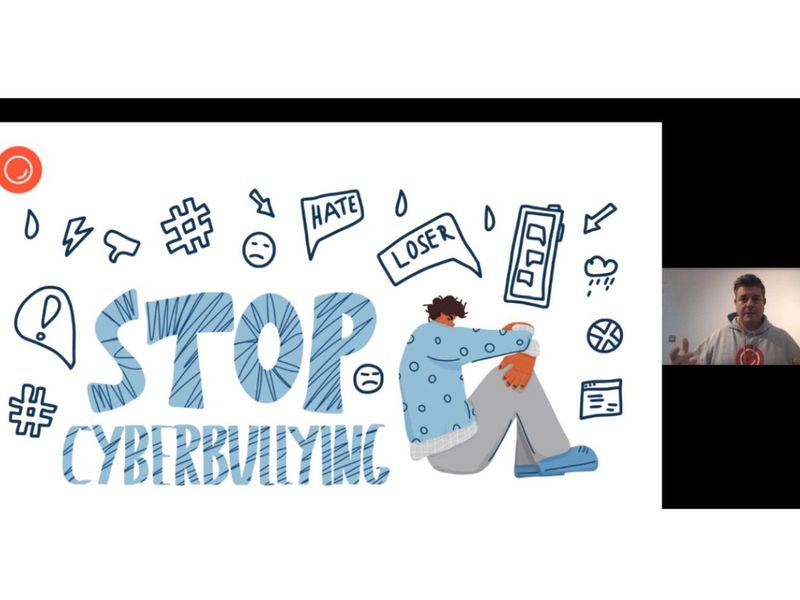Dubai: Educators in the UAE have been urged to ensure greater kindness among students in the classroom, starting from the early years, as a lasting cure for bullying.
The call came at a webinar hosted by Dubai’s Knowledge and Human Development Authority (KHDA) yesterday as part of a wider awareness drive under the UAE’s fourth edition of the National Bullying Prevention Week, organised by the UAE Ministry of Education.

Image Credit: Gulf News
This year, there has been a greater risk of cyberbullying globally because of students spending more time online for distance learning and social media use during the coronavirus pandemic at home, the KHDA-hosted webinar heard.
Has COVID-19 led to increased cyber-bullying?
On Tuesday, Dubai Police had warned students against cyberbullying, especially amid the COVID-19 pandemic. Brigadier Eid Mohammad Thani Hareb, Director of Anti-Narcotics Department at Dubai Police, said that many students in the UAE did not know the concept of cyberbullying or how to deal with it. “Many students live under pressure of emotional blackmail as they don’t know the meaning of cyberbullying. As a result, it negatively affects their behaviour at home and their future character.” Dubai Police is listing the channels that cyberbullies use to hunt for victims and how students can avoid them.
Also, nine schools in the UAE recently partnered with Dubai Police to have their students trained in fighting cybercrime and bullying. The schools, part of the GEMS Education group, are participating in the pilot scheme ‘Safety Ambassador Programme’ (SAP) with Dubai Police as part of a series of programmes to support the bullying prevention week. Following the success of the new initiative, GEMS aims to roll it out further.
Joint effort
Meanwhile, Dubai Health Authority (DHA) is participating in the prevention week with 28 local and federal authorities, seeking to especially address cyberbullying among students in private schools in Dubai. DHA’s school health department organised many events and activities through various virtual educational platforms in cooperation with the Medical Education and Research Department. More than 25 mental health specialists from the DHA, Dubai Police and various partners in the private sector participated in the event to virtually reach out to 213 private schools in Dubai.
‘Number one concern’
On Wednesday, the KHDA organised a webinar on ‘Kinder classrooms: Unpacking anti-bullying with practical tips’ as part of its ‘What Works’ series. Webinar presenter Henry Platten, CEO of GoBubble, a secure and free social media platform for children and schools, said like the coronavirus, cyberbullying can happen anywhere, anytime. Citing various research, and calling it a “global issue”, Platten added that over 60 per cent of children are exposed to the risk of cyberbullying, which rose during the stay-at-home periods with more time spent online. There has been a 44 per cent spike in the reporting of cyberbullying-related “problems”, with almost half of that (20 per cent) increasing during the pandemic era. 11 teaching days are lost annually at school because of schools having to resolve issues stemming from cyberbullying or bullying outside school. Parents have called it their “number one” concern, according to research by University of Michigan, USA. Out of every 10 victims, three will resort to self-harm, there will be one failed suicide attempt, and one will develop an eating disorder, Platten said, citing other research.
Early intervention
To effectively address bullying, intervention must start as early as KG “to set positive behaviours for later on in life”, Platten, who himself was bullied at school, added. Trying to ensure, for example, that young children have “a strong and wide friends’ network” reduces the chance a student – a potential bully – will feel jealous of someone who only plays with one friend. In elementary and primary age, children tend to develop a more conscious sense of “self and worth, and how they’re fitting into the world… what behaviour gets rewarded, what doesn’t”.
‘Reward kindness’
Platten said: “If you actually reward kindness in the classroom, particularly for the primary ages, you’re showing the importance that the school places on kindness; and likewise at home. That helps that moral character, that helps people understand the impact that they have on others.” Teachers and parents should “articulate and explain” to children whenever they spot an act of kindness. “The power of kindness can never be expressed enough. It’s value in terms of self-belief, the impact on grades and attendance is transformational.”
He added: “In teenage years, bullying and cyberbullying increases, but the way to cure or amend those behaviours in secondary school is very much in the early years’ bracket. If we can layer and establish a framework of positive behaviours earlier on, at school and at home, then it will help have an impact later on within the school culture, where bullying traditionally and statistically is more likely to occur.”
Also, if there is “a safe environment to do so”, and “on a case by case basis”, bullies and their victims should be encouraged to meet each other after an incident for “issue resolution” under the school’s supervision. This interaction can bring about a long-term or permanent solution to the incident.


